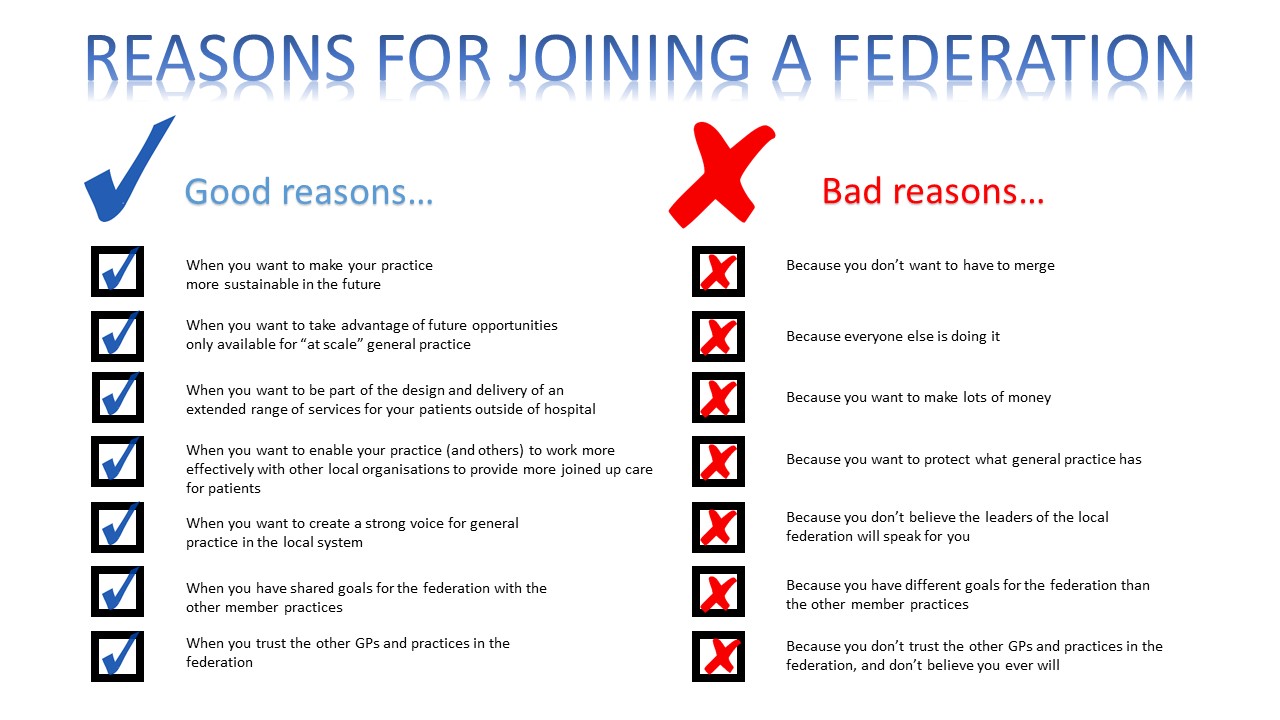Joining federations is currently de rigueur in general practice. But is it right for everybody? For federation leaders, is it important that practices join for the right reason, or is it more important that as many practices as possible join? And for a system trying to push for general practice at-scale, does the underlying motivation of practices to work together matter, or should we be pursuing the goal of scale regardless?
As someone who has led a federation in the past, and now works with practices and federations up and down the country, my view is there are good and bad reasons for practices to join a federation. When federations form with practices joining for “good” reasons, federations can fly quickly. Initiatives can get off the ground rapidly, a powerful voice for general practice can be formed, and partners can find the group easy to do business with.
Conversely, when practices have joined a federation for the “bad” reasons, progress can be painfully slow. The group can be beset by internal arguments and in-fighting from the start. Gaining practice agreement for any, even minor, initiative can be extremely challenging and the leaders are often disconnected from their members; unable to speak with any real authority for them.
Here are my seven “good” and “bad” reasons to join a federation:



No Comments